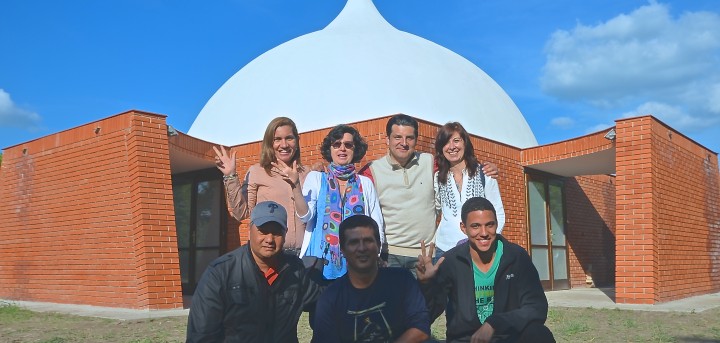The Humanists have been active and supportive of the peace process in Colombia and we are asking all the parties involved to keep the discussion open and put all their effort into having a peace resolution signed. For the last five years Colombia has changed dramatically, with a more stable living condition for a large percentage of the population. This symbolic signing to end one the most lasting and violent conflicts in current world history will, in itself, be a victory that needs to be celebrated. But the resolution of the conflict is also an opportunity to shape Colombia’s future, to give direction to a new type of culture with a different set of values. We can’t use an old system and expect a new result.
The Humanist proposal is the most powerful solution for the future of Colombia because its foundational principal is NONVIOLENCE. The majority of Colombians know, by experience, that violence doesn’t resolve conflict, violence doesn’t bring peace, and violence doesn’t help anyone.
With good reason, the population is very concerned about what is coming next for Colombia. What will Colombia’s economy look like? What place will the campesinos, the Afro-Colombianos, and the indigenous communities have in the mainstream system? How will the displaced population get back access to their land? What will the democratic system look like? What will the juridical system be after the transitional justice period is over? What will be the international community’s involvement in helping Colombia? And we can imagine a thousand more questions.
The Humanist proposal is oriented toward building the Colombia of the future and we have faith that people are ready to engage in this challenge. The present historical moment in Colombia is ripe for making profound changes in the minds and hearts of people. The peace talks taking place in the country and in Havana (Cuba) over the past five years are a concrete example of a change in disposition. The reconciliation process is moving in the right direction and needs to be deepened even more. Access to and control of the economical resources need to be shared among everyone and cannot be controlled just by a minority. Politically, new technology has to be developed to guaranty the participation of everyone in the decision-making process. The democratic system needs to be more potent and powerful to guaranty the expression of the population at large and give voice to all minorities. The transitional justice process opens the door to redefine the justice system and its functioning; it is a good opportunity to really look at addressing justice in a nonviolent way. The proposal of non-repetition as a main objective for the justice system, for example, looks interesting, as does training of military forces for humanitarian purposes. A resolution could be added to the constitution to guaranty universal state-paid education for every child under 18. A ban on joining and/or participating in any police or military forces or organizations can be implemented. These are just a selection of a long list of proposals that could and should be developed and concretized. This list does not even touch environmental issues, women’s issues, and infrastructure and energy issues, but they all need to be addressed through talks and through a real democratic process.
The challenge might look insurmountable. Violent minds, nihilists, and some economical interests are going to do everything they can to redirect the process back towards a violent society. In this chaotic time, everything looks meaningless and It is up to each one of us to connect with our best aspirations, to define the conditions under which we want to live and to make sure that we are doing our part in this humanizing process. What else could be more meaningful for oneself than that? Finally we want to remember the principle of valid action that says: “Do not oppose a great force. Retreat until it weakens, then advance with resolution.” The time has come to advance with resolution.
The International Humanist Party
Please visit the facebook page










